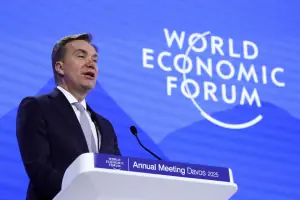German inflation rises to 28-year high of 4.5%
2 min readBERLIN: German consumer prices rose at their fastest pace since 1993 in October on the back of higher energy prices, official data showed Thursday.
The annual inflation rate accelerated for the fourth month in a row, striking 4.5 percent in October, with energy prices soaring by 18.6 percent, according to first estimates from the federal statistics agency Destatis.
In September, prices had risen in Europe's biggest economy by 4.1 percent year on year.
"There are a number of reasons for the high inflation rates since July 2021," the agency said in a statement, citing a temporary reduction in VAT in 2020 and the introduction of CO2 pricing since January 2021.
It also blamed "significant price increases at the upstream economic levels".
Gas prices have surged in Europe in recent months as demand has soared with economies emerging from their Covid-induced restrictions.
Official estimates published Wednesday showed the German government expects inflation to rise to three percent in 2021 before subsiding over the next years.
The forecast increase in 2021 would be the highest since 1993, when inflation was 4.5 percent.
Inflation would subsequently fall to 2.2 percent in 2022 and 1.7 percent in 2023, the German government predicted.
**- Supply chain disruptions -**
The government introduced a temporary VAT reduction in 2020 to mitigate the impact of Covid-19 lockdowns on the economy, lowering the base against which current price rises are measured.
Jens-Oliver Niklasch, a senior economist at LBBW bank, said this was responsible for "a considerable part" of the price surge.
However, he added: "Does that mean we can sit back and relax? Unfortunately, no. The strong increases in import and producer prices lead us to expect that inflation will remain higher next year than in the years before the pandemic."
Rising inflation is just one of a slew of worrying indicators for the German economy in recent months.
Supply chain disruptions and shortages of raw materials, including plastics, metals and paper, have choked off the recovery from the impact of the coronavirus pandemic.
The economy ministry on Wednesday revised down its estimate for growth in 2021 to 2.6 percent from its previous estimate of 3.5 percent, made in April.
However, there was also good news on Thursday, with official figures showing the unemployment rate fell in October after holding steady in September.
The seasonally adjusted unemployment rate was 5.4 percent in October, according to the BA federal labour agency, with the number of unemployed people falling by 39,000.
"The effects of the coronavirus pandemic are still palpable, but are weaker," BA head Detlef Scheele said in a statement.
For the latest news, follow us on Twitter @Aaj_Urdu. We are also on Facebook, Instagram and YouTube.





















Comments are closed on this story.